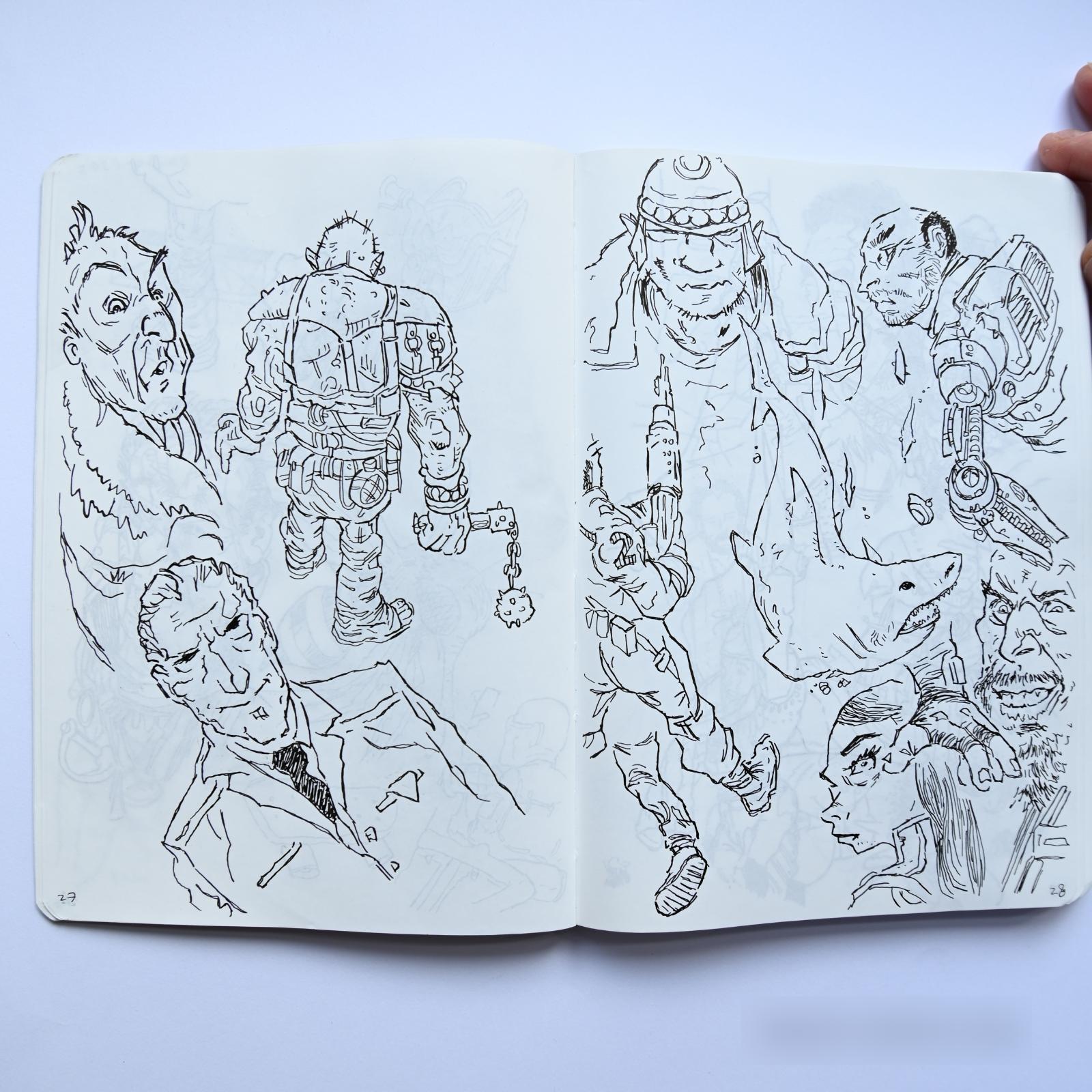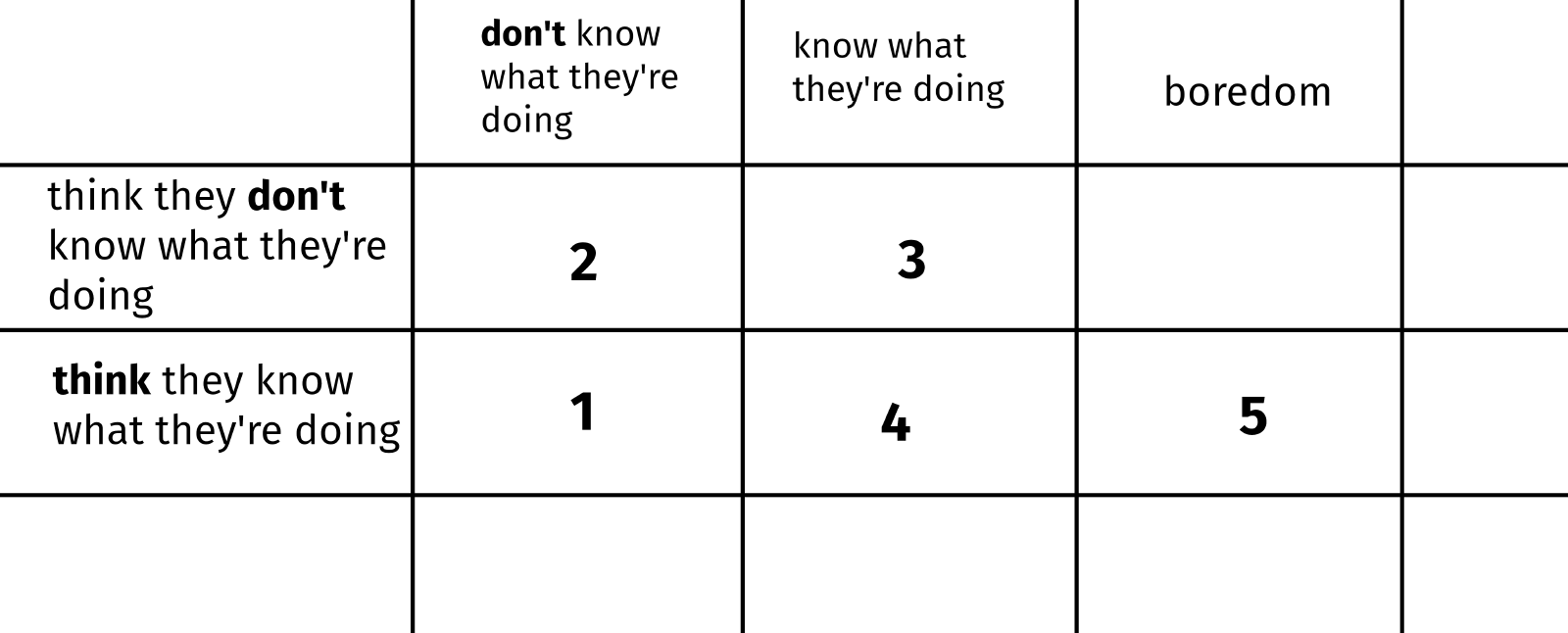#109 - The Five Stages Of Skill That Every Artist Goes Through
And what it means for artists.Warm-Up Drawing Exercises

Quickly become better at drawing—without burning out—by using my workbook.

Stage One
When you start doing something, you are in stage one: the inexperienced junior.
Stage one is where you don’t know, but you also don’t know you don’t know.
You enthusiastically lunge off in the wrong direction.
In stage one, you are best served by a mentor who micro-manages you until you start to get the hang of what you are trying to do. If you are at this stage on the job, you need someone to micro-manage you as you don’t have the right instincts to make the right choices yet.
This is also the stage where you may have the Dunning-Kruger effect; your output sucks, but you just don’t know it yet.
Stage Two
Now, you’ve tried, and you have discovered that there are things you need to learn still. You don’t know, but at least now, you know you don’t know. This is where you start looking for information to learn.
Stage Three
At stage three, you have become competent, but you don’t know it yet. This would typically also be the stage where you have impostor syndrome.
At this stage, you are still insecure about your abilities.
Stage Four
Now you have done it successfully many times. You’re now good at it, and you know it! You don’t need a mentor anymore; you can work alone and bring things to a successful completion. That is stage four.
You are scarred through battle. You have seen it all. You know all the things that can go wrong. You know about the pitfalls.
You also know that there are many ways to solve a problem and that the right solution depends on what the customer wants to use it for. You know you have to interrogate the customer first.
This is a test of seniority: if you give someone an assignment, and they ask questions first, you are dealing with an experienced person. They know which questions to ask as they run through the options in their minds. As a customer, this is an early hint that you might be in good hands.
Stage Five
Now you’ve done it so many times that you can do it on autopilot. You’re good at it, and you deliver on time.
But you’re a bit bored with it. There are no challenges left for you.
If you’re not careful, you can end up stuck here as customers like what you do and pay good money for it, leaving you little room to escape this stage.
What This Means For Artists
Ideally, as an artist, you continuously fluctuate between stages one, two, three, and four as you keep challenging yourself to do new things and learn new things. It is what can keep things exciting.
What you want to avoid is stage five, boredom.
It is true; you get stuck there if you are good at something and can make a lot of money with that skill. But it’s not a good life if you have to force yourself out of bed every day.
If you are stuck in stage five and can afford it, it is a good idea to do something radically different, a different form of art, like writing or sculpture. This is where you enter stage one again. It is incredible how much energy you get from doing something completely fresh and new! Your output will suck again, but the good news is you won’t notice at first! And it is invigorating to do something new.
As an artist, always strive to do things that are at least JUST out of reach for you.